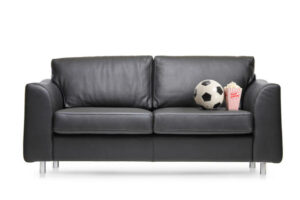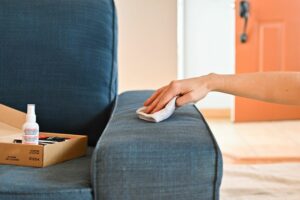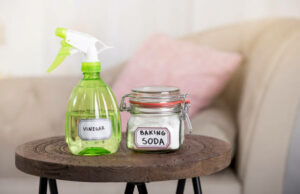Keeping your sofa clean not only makes your living space look better, but also makes it healthier. Over time, sofas can become dirty, stained and smelly from frequent use. There are many commercial cleaning products on the market, but many contain harsh chemicals and may not be suitable for all types of sofa fabrics. This article discusses vinegar as a natural and effective way to clean your couch.
1. Vinegar to clean your sofa
Many people keep vinegar in the kitchen because it has natural cleaning properties and is an excellent choice for cleaning your couch. Because it is acidic, it breaks down dirt and removes odors, leaving your sofa clean and fresh. Moreover, vinegar is safe for pets and children and does not harm the environment, so people who care about the environment like to use it.
2. Prepare your vinegar solution
Before you start cleaning, make sure the vinegar is diluted properly to avoid damage to your sofa. Add equal parts white vinegar and water to a spray bottle. If desired, add a few drops of essential oil for a nice scent. This homemade cleaner is gentle but effective and can be used on a variety of sofa fabrics.
On-site testing
Before applying the vinegar solution to the entire sofa, perform a test on a small, hidden area of the sofa. This way you can be sure that it matches the fabric of your sofa and prevents adverse reactions from occurring. Simply spray a small amount of solution onto the test area and wipe with a clean cloth. If there are no signs of damage or discoloration, you can proceed safely.
3. Clean different types of sofas
Depending on the material of your sofa, cleaning methods may vary. If you have a fabric sofa, use a soft cloth or sponge to dab the stain with the vinegar solution. Don’t scrub too hard, as this can spread the stain or damage the fibers of the fabric. If you don’t want to strip the leather of its natural oils, use a slightly diluted vinegar solution on your leather sofa. You can lightly scrub your microfiber sofa with a vinegar solution and then wipe it down with a clean cloth.
4. Cleaning step by step
To thoroughly clean your sofa, first remove any machine-washable covers or cushions. Then spray the vinegar mixture on the dirty areas, paying special attention to the areas that smell. Wait a few minutes for the solution to penetrate the fabric. Then scrub gently with a soft brush or cloth. Finally, wipe off any excess water with a clean, damp cloth and allow the sofa to air dry completely.
5. Keep your sofa dry
To prevent mold growth, items must be dried thoroughly. After cleaning, place the sofa in a well-ventilated area to dry naturally. You can also use a fan to speed up the drying process and ensure that all moisture is gone before putting the mat and cushion back in place.
6. Remove serious stains
If the stain won’t come off, such as with ink or wine, clean it again and again until it fades or disappears completely. Do not use harsh chemicals or cleaners on your sofa as they may damage the fabric or finish.
Arrange things regularly
Make cleaning your sofa part of your home routine to keep it looking great. Depending on how often you use your sofa and how much dirt it gets, you can try cleaning your sofa every few months to maintain its appearance and extend its life.
Safe
If you use vinegar to clean, make sure there is plenty of air circulation in the room to avoid inhaling fumes. Also wear gloves to avoid exposing your hands to acidic solutions for extended periods of time.
7. Alternatives to vinegar
Not only does vinegar work as a natural cleaning agent, but you can also use baking soda or hydrogen peroxide to clean your couch. Try different ingredients to find the cleaning method that best suits your needs.
8. Environmental benefits
Natural cleaning products such as vinegar not only protect your health, they also have a smaller impact on the environment. Commercial cleaning products may contain chemicals that are harmful to the environment. Vinegar, on the other hand, decomposes naturally and does not pose a major threat to the ecosystem if disposed of properly.
Common mistakes
When cleaning your sofa with vinegar, don’t make the common mistake of pouring the vinegar directly onto the fabric; this can damage or disfigure the sofa
It removes dirt, stains and odors without using harsh chemicals. By following the steps below and taking safety precautions, you can keep your sofa clean and fresh while causing as little damage to the environment as possible.
FAQs
Can I use vinegar to clean my sofa?
Many people use white vinegar to clean, but apple cider vinegar and other types of vinegar also work.
Will vinegar stink if left on the couch?
No, vinegar does not last long. When it dries, it leaves a light, clean scent.
Can I use vinegar to clean a suede sofa?
Vinegar should not be used on suede as it can damage the soft fabric.
Is it okay to use vinegar around children and pets?
Vinegar is safe to use around pets and children because it is non-toxic.
How often should I clean my sofa with vinegar?
How often you clean your sofa will depend on how often you use it and your personal preference, but every few months is usually enough to keep it clean.











